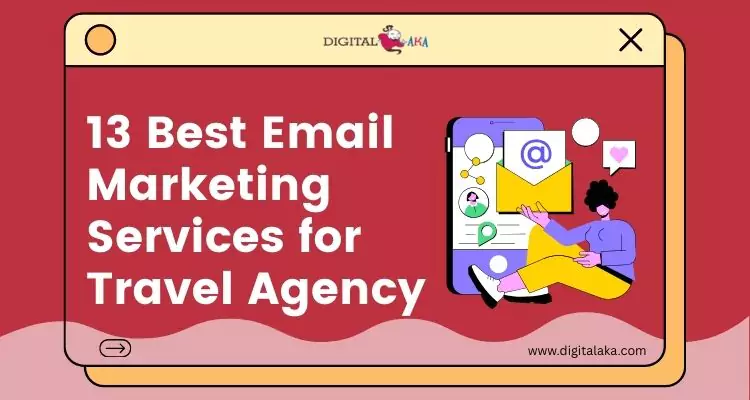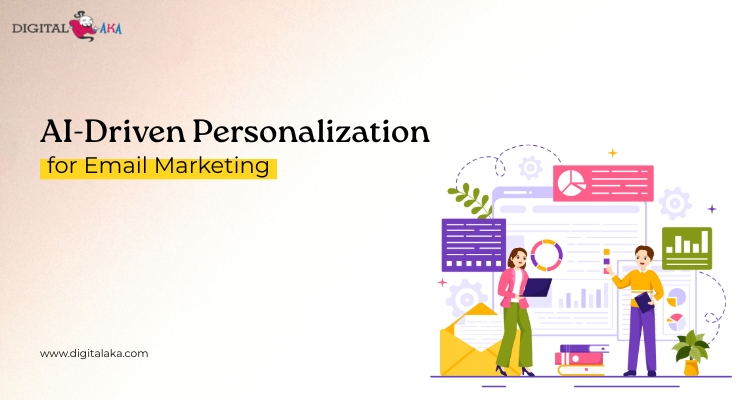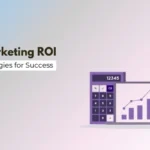
Email Marketing ROI- Proven Strategies for Success
December 18, 2024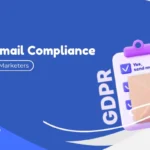
GDPR Email Compliance- Checklist for Marketers
December 27, 2024Email Drip Campaigns have become one of the most effective tools for businesses in the rapidly evolving digital marketing world. This strategy allows you to deliver personalized, automated, and relevant content to your audience, fostering relationships that can lead to higher engagement and conversions. As businesses continue to seek more efficient ways to engage their customers, drip email campaign provide a powerful way to boost sales and strengthen customer relationships.
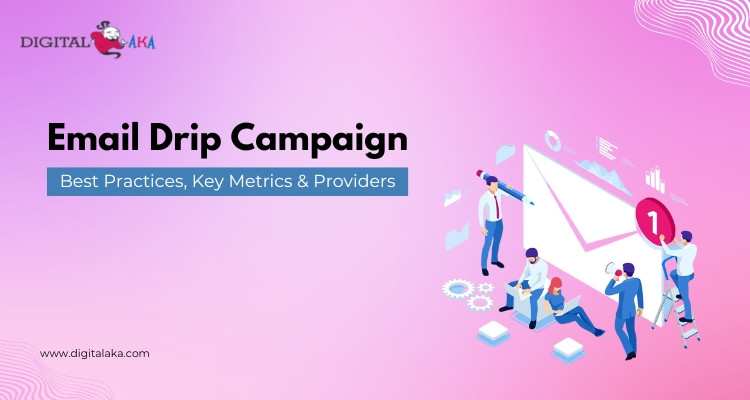
In this blog, we will explain what an Email Drip Campaign is, how to create one effectively, and why it’s beneficial for your business. We’ll also share some tips on how to make your campaigns more successful. Additionally, we’ll show you how to measure the success of your drip campaign emails by tracking important metrics.
Table of Contents
What is an Email Drip Campaign?
An Email Drip Campaign refers to a series of pre-scheduled, automated emails that are sent to subscribers based on specific triggers or actions. These emails are sent out over a defined period and are designed to nurture leads, provide valuable content, and guide subscribers toward a desired action, such as making a purchase, signing up for a webinar, or downloading an eBook.
The main advantage of a drip email campaign is automation. Once set up, it runs on autopilot, sending targeted, personalized emails at the right times based on user behavior. Whether you want to welcome new subscribers, engage potential customers, or recover abandoned carts, a well-structured email marketing drip campaign can help you achieve your goals more effectively.
Pricing
| Trail Plan | Standard Plan | Premium Plan | Professional Plan |
| $50 | $145 | $185 | $225 |
| Sending Limit | Sending Limit | Sending Limit | Sending Limit |
| 1000 Emails/Hour | 1500 Emails/Hour | 3000 Emails/Hour | 5000 Emails/Hour |
How to Create an Effective Email Drip Campaign
Creating an effective Email Drip Campaign requires planning, strategy, and an understanding of your audience’s journey. Here’s a step-by-step guide to help you get started:
Step 1: Define Your Campaign Goal
The first step in creating success is the design and flow of your campaign.
Step 2: Segment Your Audience
To ensure your drip campaign emails are relevant and impactful, segment your email list. By categorizing subscribers based on behaviors, interests, or demographics, you can send personalized content that speaks directly to their needs.
Step 3: Create Compelling Content
Each email in your drip campaign should offer value. Whether you’re educating, entertaining, or offering incentives, make sure each email provides something useful that moves your audience closer to the next step in their journey.
Step 4: Set Triggers and Automate
Triggers are actions or behaviors that initiate a specific email in your email marketing drip campaign. For example, when a user subscribes to your newsletter, they may receive a welcome email. Once you have your triggers defined, you can use email automation software to set up your drip email campaigns, ensuring that the emails are sent automatically at the right times.
Step 5: Monitor and Optimize
Even though email drip campaigns are automated, it’s important to track their performance regularly. Monitor open rates, click-through rates, conversions, and other metrics to determine how well your campaign is performing. Use A/B testing to optimize your subject lines, content, and CTAs for better results.
Top Benefits of Using Email Drip Campaigns for Your Business
There are numerous benefits to implementing an Email Drip Campaign in your business, whether you’re a small startup or a large enterprise. Here are the top advantages:

1. Time and Resource Efficiency:
Once set up, email drip campaigns run on autopilot, which means you don’t have to manually send emails every time a new subscriber joins or a lead takes action. This saves valuable time and resources.
2. Nurture Leads Effectively:
Drip campaigns allow you to nurture leads by delivering valuable, relevant content over time. This builds trust and keeps your audience engaged, increasing the chances of conversion.
3. Higher Engagement:
Because drip campaign emails are personalized and targeted, they result in higher engagement compared to generic, one-off emails. Subscribers are more likely to open and interact with emails that are tailored to their interests and behaviors.
4. Increased Conversions:
The strategic, well-timed delivery of content in email marketing drip campaigns encourages recipients to take action. Whether it’s clicking a link, filling out a form, or making a purchase, drip campaign emails guide your subscribers toward conversions.
5. Better Customer Retention:
Drip campaigns are not just for acquiring customers; they can also help with retaining existing ones. By keeping your customers engaged with relevant content, product updates, or loyalty offers, you can improve customer loyalty and reduce churn.
Best Practices for Personalizing and Automating Your Drip Campaigns
To make your Email Drip Campaign more effective, personalizing and automating your emails is key. Here are some best practices to help you create a more engaging and successful campaign:

1. Personalize Your Emails
Personalization goes beyond just adding the subscriber’s name in the subject line. Here are a few ways to personalize your drip campaign emails:
- Segment Your Audience: Group your subscribers based on their behavior, demographics, or interests. This way, you can send targeted, relevant emails to different segments.
- Use Dynamic Content: Adjust email content based on the recipient’s actions. For example, if someone clicked on a product in your previous email, send them more information about that product or similar items.
- Tailor Subject Lines and CTAs: Personalize your subject lines and calls to action (CTAs) based on the subscriber’s interaction with your business. For example, if a subscriber recently downloaded a free guide, offer them a special discount on related products.
2. Automate Your Email Workflows
Once your Email Drip Campaign is set up, automation helps keep the process running smoothly without you having to manually send each email. Here’s how to automate effectively:
- Set Triggers: Create automated workflows that are triggered by specific actions, like signing up for your newsletter or abandoning a cart. This ensures the right email is sent at the right time.
- Use Email Marketing Tools: Platforms like DigitalAKa, SMTPget, and ActiveCampaign allow you to create automated email sequences, saving you time and effort while keeping your emails personalized and timely.
- Set Email Timing: Automate when your emails are sent based on the recipient’s timezone or behavior. For example, if someone clicks on a link, follow up with another email within a few hours or days.
3. Use Behavioral Triggers
Behavioral triggers are actions taken by the user that automatically start a sequence of emails. For example:
- Welcome Emails: Triggered when someone subscribes to your list. This is a great opportunity to introduce your brand and provide useful resources.
- Abandoned Cart Emails: Automatically sent to users who leave items in their shopping cart without completing the purchase.
- Post-Purchase Emails: Triggered after a customer makes a purchase. These emails can include order confirmation, shipping updates, or requests for product reviews.
4. Craft Engaging Content
While automation makes your life easier, the content within your drip campaign emails should be engaging and valuable. Some tips:
- Provide Value at Every Step: Each email should offer something useful. Whether it’s a special offer, helpful information, or an educational resource, make sure it helps the recipient in some way.
- Maintain a Consistent Tone and Style: Keep your voice and messaging consistent across your emails to build a strong brand identity.
- Incorporate Storytelling: People connect with stories. Share customer testimonials, success stories, or behind-the-scenes looks at your business to engage readers and build trust.
5. Test and Optimize Your Campaigns
Even though your emails are automated, it’s important to constantly optimize them. A/B testing is essential for improving your drip campaign emails:
- Test Subject Lines: Experiment with different subject lines to see which ones get the highest open rates.
- Test Content: A/B tests different content formats, like images, text, and links, to see what resonates best with your audience.
- Monitor Performance: Track key metrics like open rates, click-through rates, and conversions. Use this data to tweak and improve your emails over time.
6. Use Segmentation to Improve Relevance
Rather than sending generic emails to your entire list, segment your audience into groups based on characteristics like:
- Demographics: Age, location, gender, etc.
- Engagement Level: How often do they interact with your emails or website?
- Purchase Behavior: Recent purchases, cart abandonment, etc. By sending targeted messages to each segment, you ensure that your Email Drip Campaign feels more personal and relevant to the recipient, increasing the chances of engagement and conversions.
7. Maintain Consistency in Email Frequency
One of the benefits of automation is that you can set your emails to be sent at consistent intervals. However, it’s important to find the right balance:
- Avoid Overloading: Too many emails in a short time can overwhelm your subscribers, causing them to unsubscribe.
- Don’t Be Too Infrequent: If your emails are spaced too far apart, your audience might forget about you or lose interest.
- Test Timing: Monitor open rates and engagement to determine the best times and frequency for sending your emails.
Best Email Drip Campaign Software
To run a successful email marketing drip campaign, you need the right tools. Here are some of the best email drip campaign software options to consider:
1. DigitalAka
DigitalAka is a growing platform that helps businesses manage email services with ease. It provides a strong automation feature that allows you to send personalized emails based on user actions. With a simple interface and powerful segmentation tools, DigitalAka can streamline your marketing efforts and improve campaign results.
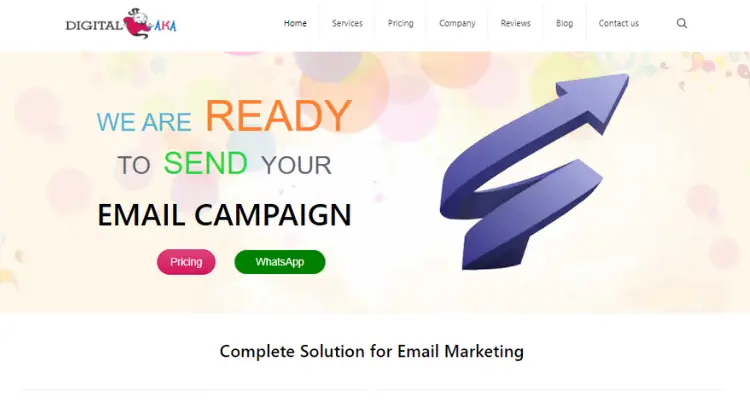
Key Features:
- Simple, user-friendly interface
- Advanced segmentation and tagging
- Automation workflows for personalized emails
- Analytics for campaign performance
2. SMTPget
SMTPget offers reliable bulk email services, particularly for businesses that need a strong platform for drip email campaigns. SMTPget integrates easily with your website or CRM system, and its automation tools help you send timely, relevant emails to your subscribers based on triggers.
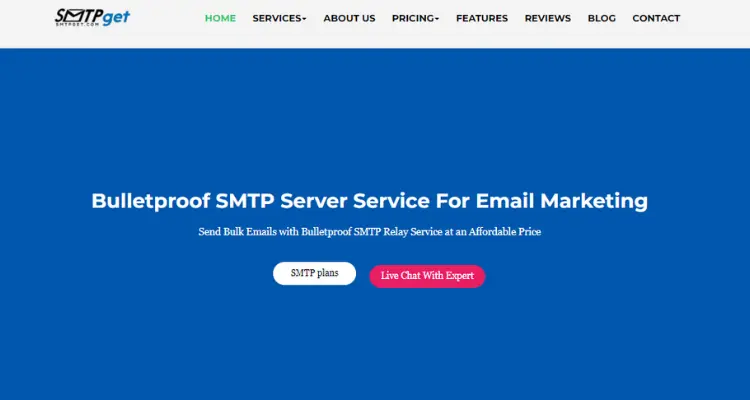
Key Features:
- Automated email sequences
- Integration with CRMs and eCommerce platforms
- Detailed reporting and analytics
- High deliverability rate
3. ConvertKit
ConvertKit is designed for creators, bloggers, and small businesses. It offers easy-to-use tools for creating Email Drip Campaigns, including customizable automation workflows and segmentation features. ConvertKit helps you send targeted emails and provides detailed reports on how your campaigns are performing.

Key Features:
- Simple automation workflows
- Easy-to-use email builder
- Subscriber tagging and segmentation
- Growth-focused email marketing tools
4. Drip
Drip is an eCommerce-focused email marketing platform that helps businesses set up personalized Email Drip Campaigns. It offers advanced segmentation, powerful automation workflows, and integration with eCommerce platforms like Shopify. Drip also provides detailed analytics to measure the success of your campaigns.

Key Features:
- Ecommerce integrations (Shopify, BigCommerce)
- Advanced segmentation and behavioral targeting
- Visual workflow builder
- Automated email triggers
5. iDealSMTP
iDealSMTP is another powerful tool for email marketing automation that excels in delivering email marketing drip campaigns. With a focus on email deliverability, iDealSMTP ensures that your emails reach your audience’s inbox reliably. It offers a range of automation features, segmentation, and analytics to help you optimize your drip campaigns.
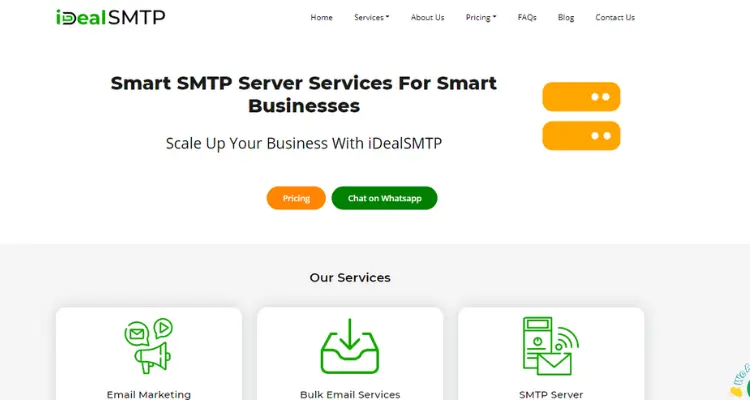
Key Features:
- Advanced segmentation and targeting
- High email deliverability
- Detailed reporting and analytics
- Reliable integration with multiple platforms
6. Mailchimp
Mailchimp is one of the most popular email marketing platforms and offers strong features for creating Email Drip Campaigns. With its easy-to-use interface, Mailchimp allows you to automate email sequences, segment your audience, and track campaign performance. It also offers A/B testing, customizable templates, and detailed analytics.
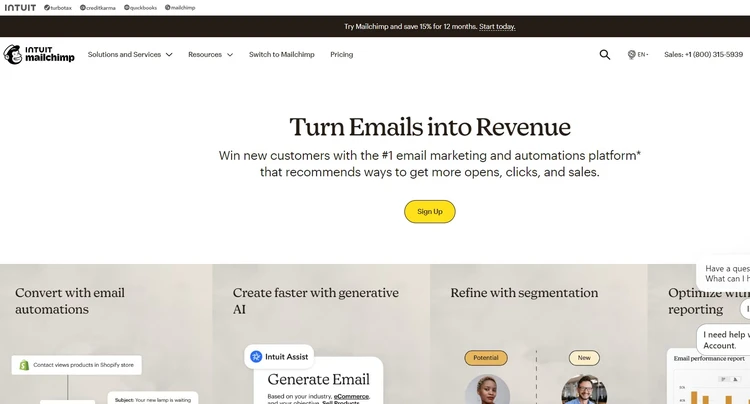
Key Features:
- Automated workflows
- Detailed analytics and reporting
- Advanced segmentation
- Drag-and-drop email builder
7. ActiveCampaign
ActiveCampaign is a powerful SMTP server provider that offers advanced features for drip email campaigns. It allows you to create sophisticated workflows, automate follow-up emails, and segment your audience based on their behavior. ActiveCampaign also integrates with various CRM systems, helping you manage customer relationships.
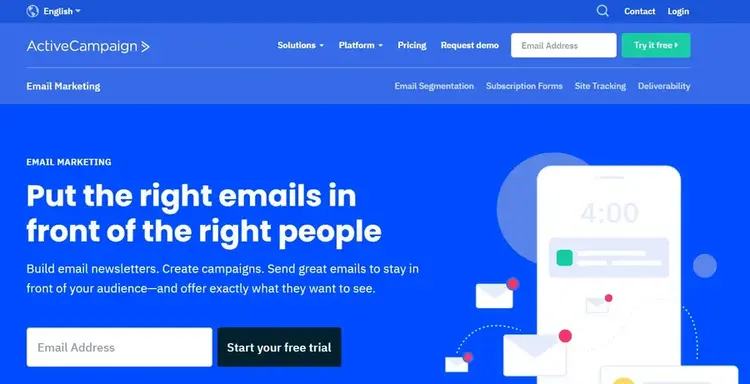
Key Features:
- Customer relationship management (CRM) integration
- Conditional content and dynamic email creation
- Advanced segmentation and targeting
- Email marketing automation
8. Mailerlite
Mailerlite offers a comprehensive inbound marketing platform with advanced email automation tools. Their Email Drip Campaign feature enables you to create personalized email sequences that nurture leads over time. Mailerlite also allows you to track interactions, so you can tailor your emails based on subscriber behavior.

Key Features:
- CRM integration for lead tracking
- Workflow automation
- Detailed reporting and analytics
- Personalization and dynamic content
Key Metrics for Tracking Drip Email Campaign Performance
To ensure your Email Drip Campaign is effective, it’s important to measure its performance regularly. Below are some key metrics you should track:
1. Open Rates
Open rates measure the percentage of recipients who opened your email. A high open rate indicates that your subject line and sender name are engaging and relevant. If open rates are low, consider testing different subject lines or sending at optimal times.
2. Click-Through Rates (CTR)
Click-through rates show the percentage of recipients who clicked on a link in your email. This metric helps gauge how compelling and relevant your content is. A high CTR means your email’s call to action (CTA) is working effectively.
3. Conversion Rate
The conversion rate is the percentage of recipients who took the desired action, whether it’s completing a purchase, signing up for a webinar, or downloading an eBook. This is the ultimate goal of most email marketing drip campaigns.
4. Bounce Rates
Bounce rates indicate the percentage of emails that couldn’t be delivered. A high bounce rate suggests that your email list may need cleaning or that your emails are being flagged as spam.
5. Unsubscribe Rates
Unsubscribe rates show how many people opted out of your email list after receiving your campaign. While a small number of unsubscribes is normal, a sudden spike could mean that your content is not resonating with your audience.
Conclusion
An Email Drip Campaign is an invaluable tool for businesses looking to nurture relationships, engage customers, and increase conversions. By following the steps outlined in this blog — from setting up your campaign to measuring its success — you can build an effective drip email campaign that delivers real results.
Remember, the key to a successful email marketing drip campaign lies in personalization, segmentation, and optimization. By adhering to email drip campaign best practices and continuously improving your approach, you can maximize the impact of your email marketing efforts.
With the right strategy, software, and metrics in place, you’ll be well on your way to creating email campaigns that drive engagement and sales.


